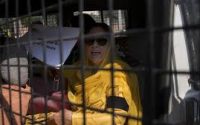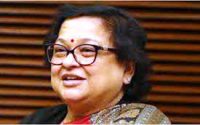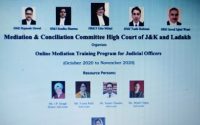$100 Website Offer
Get your personal website + domain for just $100.
Limited Time Offer!
Claim Your Website Now‘Will push to resolve Kashmir problem’: Hasnain Masoodi
Source: hindustantimes.com
Anantnag, a one-hour drive from Srinagar, lies in the heart of south Kashmir, one of the most troubled zones in the strife-torn Valley. Already, in the few weeks since the general election results were announced on May 23, Anantnag has made headlines for a terror attack that killed a policeman and five Central Reserve Police Force (CRPF) personnel as well as for an encounter between militants and security forces that claimed the life of an army officer. Pulwama, where 40 CRPF troopers were killed in a suicide car bombing on February 14, is part of the constituency.
Anantnag is also the place that bred the young Burhan Wani, who disappeared into the mountains of Tral only to emerge on social media, AK-47 in hand, as the head of militant group Hizbul Mujahideen. When Wani was killed by security forces in July 2016, Kashmir erupted in massive civilian unrest — over 100 died and several thousand were injured in protests.
It is in Anantnag that Hasnain Masoodi, 65, a former judge of the Jammu and Kashmir high court —he retired in 2016 — entered the electoral fray as a National Conference candidate and won.
Masoodi had never dabbled in electoral politics and was surprised when NC president Farooq Abdullah called on him one afternoon in April for a cup of tea, and asked him to join the party. The two had earlier worked together to devise a strategy around the legal battle on Article 35A of the Indian Constitution that allows the state’s legislature to define who is a “permanent resident,” eligible for special privileges such as government employment and acquisition of property, among other things.
Since 2014, Article 35A has been challenged in the Supreme Court. Both the NC and the Communist Party of India (Marxist) have filed interventions seeking to question the legal challenge. Separately, last year, Article 370, which grants special status to J&K, was also challenged in the Supreme Court.
Significantly, in 2015, in another case, a division bench of the J&K high court comprising Masoodi and justice Janak Raj Kotwal ruled that Article 370 was “beyond amendment, repeal or abrogation”. It also held that Article 35A gave “protection” to existing laws in force in the state and to any law enacted after 1954 by the state legislature.
“We were looking for somebody who has the gravitas to take a strong message to the area, particularly on issues like 35A and Article 370,” said former chief minister and the NC president’s son, Omar Abdullah.
“He is a man who knows the law and can talk about issues that are vital to Kashmir,” Farooq Abdullah said.
What do you prefer, HT asked Masoodi — a court of law or the people’s court? “As a judge, I would hear and adjudicate on cases that were brought to my court. I couldn’t go to somebody’s place or choose issues. Now, hundreds of people come without a formal application. The canvas is much wider,” he replied.
A postgraduate in law from Harvard University, an Ivy League college in the United States, Masoodi is hardly in a position to choose — Anantnag does that for him, and most of the options are bleak. The data from police records that he used in his election speeches offers a glimpse of his priorities: in five years, 91,000 houses searched in nocturnal cordon-and-search operations, 450 deaths and 32,000 arrests. The statistics he cites feed the anger and alienation experienced by his constituents.
Anantnag constituency comprises 16 assembly segments, each as volatile as the next. Masoodi would know. He escaped a grenade attack at an NC election meeting at party leader Muhammad Ashraf Bhat’s home in Tral in April. Masoodi’s home in Khrew (a part of Anantnag) was attacked in 2014, when his son, Yawar, a practising lawyer, was NC’s candidate for the 2014 assembly elections and two security guards were killed. Despite the risks, winning Anantnag seemed easier than what lies ahead.
Masoodi defeated Peoples Democratic Party (PDP) chief Mehbooba Mufti by close to 10,000 votes and the Congress’ Ghulam Ahmad Mir by over 7,000 votes, but his victory came out of one of the lowest voter turnouts. Unlike in 2014, when the voter turnout was 28.84%, this year only 8.31%of 1.3 million registered electors cast their vote in an election that was spread over three phases.
This was, in large part, due to Mufti’s alliance with the Bharatiya Janata Party (BJP), even though in her 2014 general election campaign, Mufti, who had won from Anantnag, had asked the electorate to vote in large numbers, to prevent the BJP from opening its account in the state. “They will abrogate Article 370 and are a threat to our identity,” she had said.
The BJP’s election manifesto this year stated that it would do away with articles 370 and 35A — an issue that state leaders from both the PDP and the NC have reacted against.
“We don’t have an elected government in Jammu and Kashmir, so there is a lot of pressure on me,” Masoodi said.
“Jammu and Kashmir is not like any other state. With the new dispensation at the Centre, issues regarding our identity and autonomy have taken centre stage. We have a right to our identity and I am glad that I have got a chance to voice this in Parliament,’’ said the new MP, who feels politics is the best medium to serve the people.
He hopes his legal prowess will stand him in good stead. “Mehbooba Mufti painted our youth as terrorists. Justice has been made unavailable to thousands of people. The state arrests our boys and keeps them in lock-up without FIRs [first information reports],” he said.
Masoodi’s ties to Khrew run deep. His mother, Zainab, was the first woman to set up a school in Khrew. She was appointed to do so by Maharaja Hari Singh in 1938. As a judge, he is also known for a verdict which stated that Muslim men’s power to divorce their wives was not unrestricted, but needed proof of attempts to settle disputes. Now, as an MP, a large part of his day is spent meeting parents of young Kashmiris who are in detention.
Among those who now flock to him are people who did not vote. “I did not vote. There was widespread fear in Pulwama,” said Bashir Ahmad, a government employee.
He, however, sought Masoodi out to help him secure the release of his son, Raees-ul-Islam, currently in jail in Jammu’s Kot Balwal. Masoodi’s phone rings incessantly and he excuses himself to answer it. “I can’t afford to not answer the phone.” Another father has called for help.
With the BJP winning 303 seats for a clear majority in Parliament, Masoodi said Prime Minister Narendra Modi has been gifted with a unique opportunity to create history. “He can be known as someone who worked for peace in South Asia if he pays heed to our aspirations,” Masoodi said.
“I will push very hard for a resolution of the Kashmir problem. We need an ‘Operation All Out’ to address the alienation. For how long will we keep carrying bodies?” he asked.
Successive chief ministers, including from the NC, have often been ignored by Delhi when they’ve called for a dialogue. “I don’t know about success, but I will definitely make a noise. We deserve to be heard,” he said.



